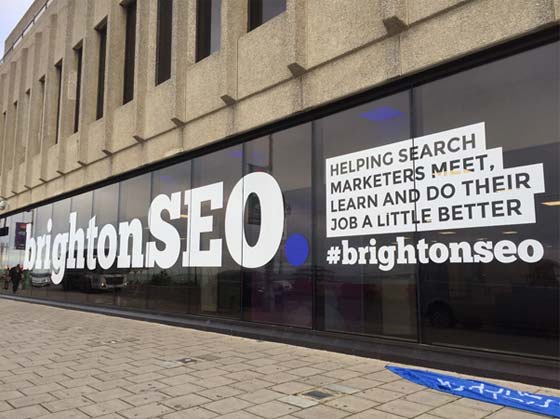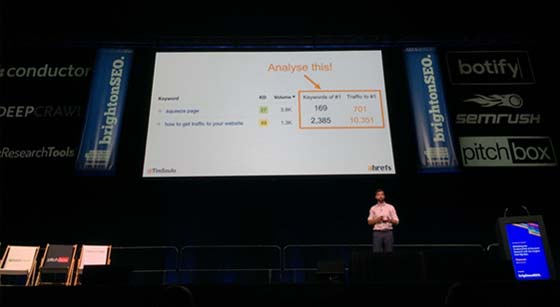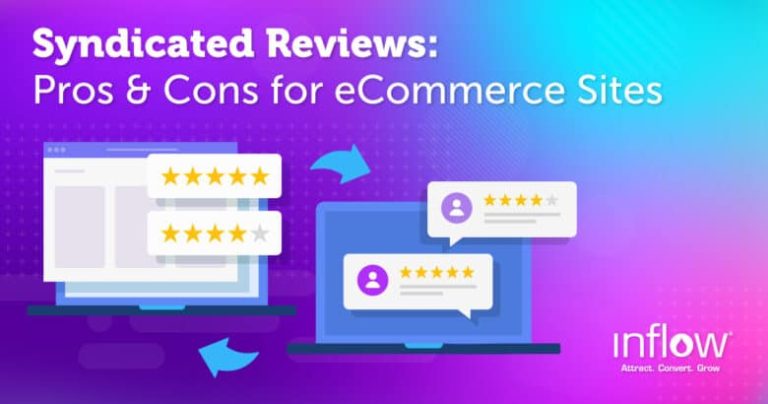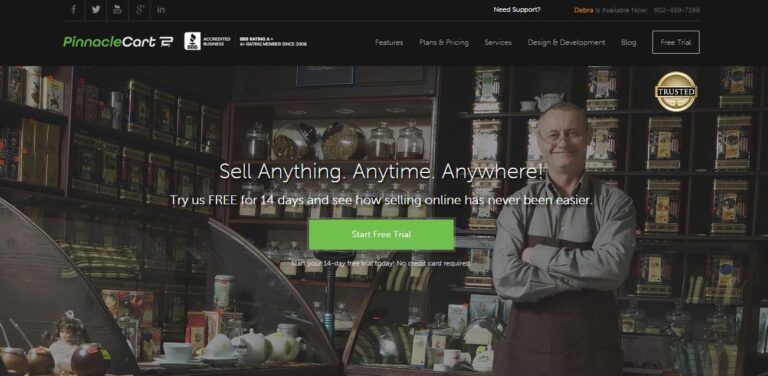Not even half a year after the last Brighton SEO event, it was time to get some industry updates, be introduced to new search marketing tools, and be inspired and entertained at the second round of the “biggest SEO conference in the world”. There we were able to listen to 13 talks across 5 themes and speak to representatives promoting their companies’ search marketing tools. Since there is a lot to get through, I have split our learnings and reactions of the day into two parts, starting with this part 1 which covers the talks that gave me insights into the future of search and how to prepare for it. So, without further ado, let’s begin by seeing what the seers at Brighton SEO predicted…

Greg Gifford, Vice President of Search at Wikimotive
The first group of talks I attended was about the future of search, which Greg kicked off by highlighting the need for SEO strategy to adapt to Google’s increasing focus on entities and consequential move away from simple keyword matching. To perform well in the future world of SEO, he explained, SEO strategy should be centred around improving user experience on both the search results page and the website, which will in turn prepare online businesses for local search and voice search. “Stop worrying about voice search”, he assured us, “it’s just SEO!”
How could we achieve the perfect user experience, this holy grail of search marketing? Helpfully, Greg also had the answer to this:

The ThoughtShift team have a wealth of expertise but this talk reminded us to focus on SEO tactics that have the most impact on our clients’ performance. As Google gets better at understanding context, the old “tricks” – link building for example – that search marketers had to play in the past to keep up with the competition are becoming increasingly less important as a ranking factor.
As for the talk itself, was it unique and valuable as Greg advised web content should be? I thought so: using stills from the film Beetlejuice to take us through the evolution of Google Search, Greg delivered a memorable talk and strong direction in how to prepare ourselves for the future of SEO.
Tim Soulo, CMO & Product Advisor at Ahrefs.com
The next talk I attended elaborated on Greg’s second point: how to ensure that onsite content matches the query intent. Using evidence from the search results pages of 100,000 search queries in the US, Tim explained that the top ranked organic listing gets the most traffic out of all the listings on page 1 only 49% of the time. This is because while the average top ranked organic listing ranks for 1,000 keywords, it does not match the search intent behind all the keywords.

As Tim’s example shows, there are lots of natural sentence/question-based searches out there that not only give you a better idea of what the intent behind the search is, but also have far greater potential to generate web traffic than simple noun searches:

I thought that these statistics were a great reinforcement to ThoughtShift’s SEO keyword research methodology, which is to target keywords that may have lower search volume but have the potential to generate the most traffic.
Sal Mohammed, Head of Partnerships at Adzooma
The final talk regarding the future of search was by Sal, who urged people in general to stop fearing AI and focusing on recent flaws, and instead find ways to collaborate with AI. For search marketers, that meant utilising AI that serve a particular function – which Sal classified as “narrow AI” – to do the things that we know it is good at and thereby free up time for strategic thinking. Quoting Sundar Pichal, who said that AI was an invention “more profound than electricity or fire”, Sal cautioned against hoping that the current ways of working would continue to be sustainable and watching inactively as our competitors become more efficient and more cost effective in their way of working.

One example that Sal gave of an area in which AI has a high accuracy rate was in the medical industry: AI can predict with a 70% accuracy rate who will turn up for a doctor’s appointment. This was useful information for GP surgery receptionists, but I would have found the talk more useful if examples had been given of instances where AI has been accurate in the search marketing industry. Too often in ThoughtShift’s experience AI – for example Google’s smart bidding and recommendations to improve account score – had been a hindrance rather than a help, and though this talk motivated me to think of ways to better utilise the AI-reliant search marketing tools available to me, it did not give me the direction I desired into where I should focus my efforts.
Chris Liversidge, Director at QueryClick
Thankfully, a talk in the afternoon group of talks provided one direction. Chris gave a very graph-heavy talk that cautioned against creating an attribution model without the help of AI.

At ThoughtShift, we work predominantly with a last-click attribution model, so this talk was not a great help to me. Moreover, I was wary of a talk about a problem for which the speaker’s company sells a solution, since it may have exaggerated the problem in order to exaggerate the necessity of the solution. Still, it was useful to hear Chris’ opinion and be able to share with our clients’ in-house marketing teams that relying on basic Google Analytics data may lead to inaccuracies in attribution, which forecasting technology may resolve. For small to medium sized businesses, which form the majority of ThoughtShift’s clients, the lack of a large pool of data to work with would mean that good quality data by Chris’ standards may be non-existent, a scary thought, so it was reassuring to hear that there is something we can do about this.
If you found this useful look out for part 2 of this blog post, which will cover the rest of my takeaways from Brighton SEO September 2019!
Follow my contributions to the blog to find out more about digital marketing, or sign up to the ThoughtShift Guest List List, our monthly email, to keep up-to-date on all our blogposts, guides and events.






